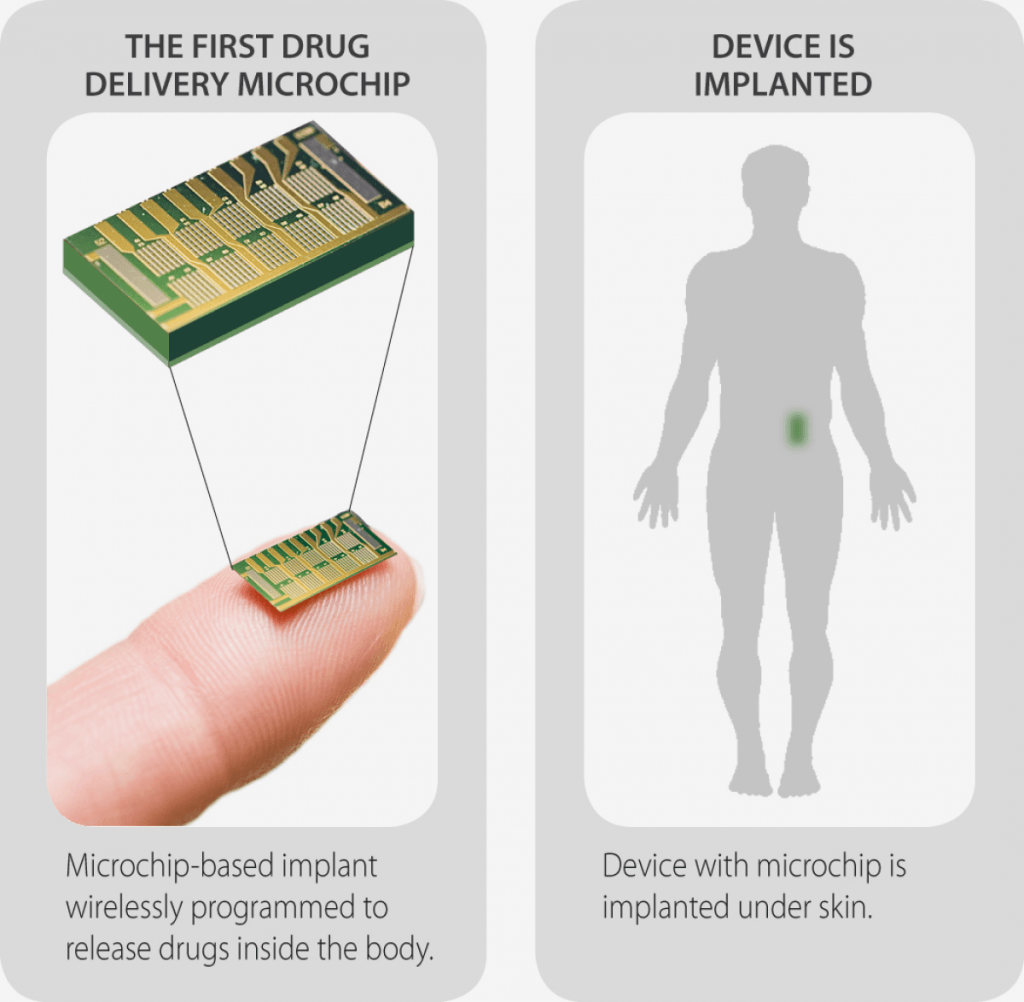(Editor’s Note: This story is from 2014 and I am just now hearing about it (I’m not surprised) and knew I needed to share it with you all.)
The Bill and Melinda Gates Foundation is funding the development of a contraceptive microchip that can be remotely controlled to release hormones that can act as abortifacients into a woman’s body for up to 16 years. Both the chip’s potential to take a life and the potential privacy concerns have drawn criticism.
The chip, which measures 20 x 20 x 7 millimeters, can be implanted under the skin of a woman’s buttocks, upper arm, or abdomen in 30 minutes. The device contains a 16-year reservoir of the drug levonorgestrel, releasing 30 micrograms a day – but the dosage can be altered by remote control, as well.

Image source from GovernmentFishbowl.com
The technology was originally intended, and tested, to release osteoporosis medication in elderly women, but Dr. Robert Langer of MIT changed his focus to contraception after a personal discussion with Bill Gates. Gavin Corley, a biomedical engineer, told the BBC the technology could be used to achieve contraceptive targets in the developing world, indicating “a humanitarian application as opposed to satisfying a first-world need.”
The announcement comes as the Gates Foundation is spearheading an international, multi-billion-dollar push for expanding birth control in the developing world, bringing charges from pro-life and political [groups] that they are engaged in global population control.
Dr. Robert Farra of MIT said the subcutaneous computer chip must be given “secure encryption” so that “someone across the room cannot re-program your implant.” To date, that security has not been developed.
https://www.youtube.com/watch?v=JTpA6KQhsNY
Civil libertarians worry about how hackers – and rogue government agencies – could exploit that technology. “Whatever that chip transmits will go into a government file,” John Whitehead, a constitutional attorney and founder of The Rutherford Institute, told LifeSiteNews. “The chip may actually know when you’re having sex. So, there will be no privacy, no.”
*Article originally appeared at Health Impact News.












